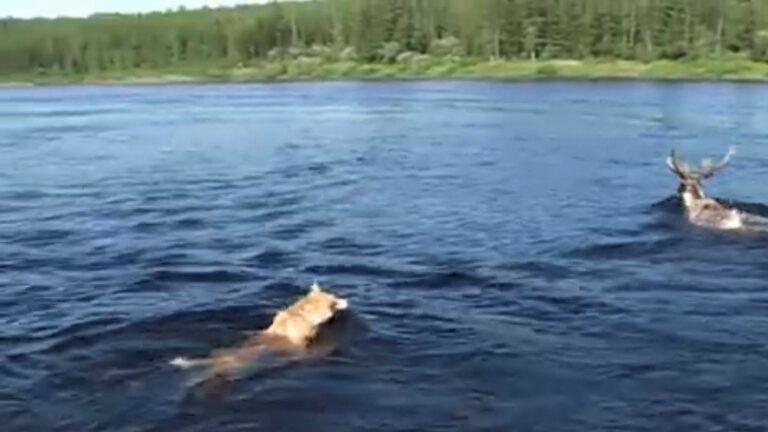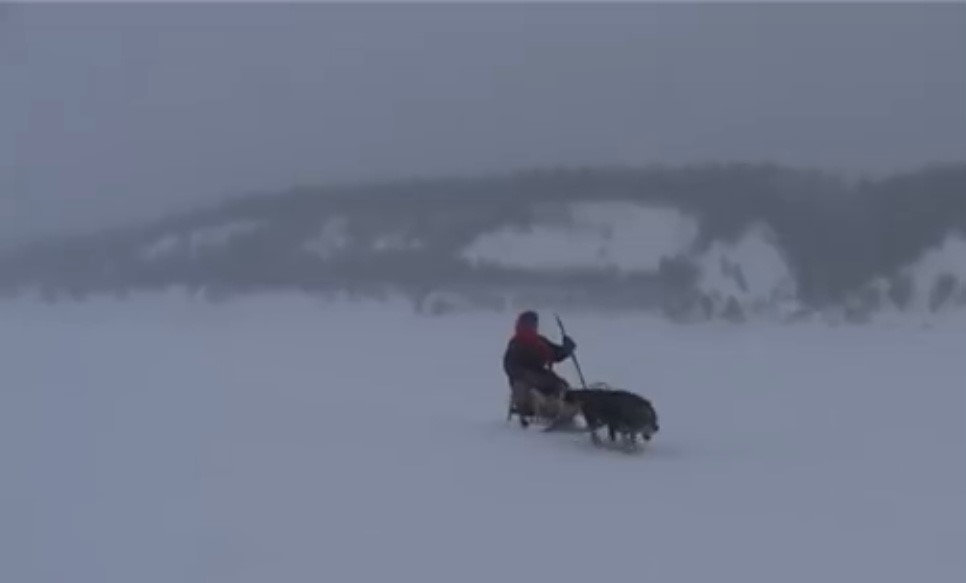Introduction
A few weeks ago I was listening to The MeatEater Podcast with host Steven Rinella. On this podcast Rinella interviewed renowned director and filmmaker Werner Herzog. I found it curious that an outdoors (hunting and fishing) based podcast would be interviewing someone who seemingly had no direct connection to the outdoors (at least at first glance) besides directing films/documentaries about people who spend/spent time outside. I later learned that in order to truly capture the whole brutality and humility that nature pushes on film one must be willing to live with it and respect it.
This specific podcast episode was tilted, “Nature and Suffering with Warner Herzog”. I initially clicked on the interview as I admire Herzog’s work in the documentary, Grizzly Man, which follows a flamboyant Timothy Treadwell using Treadwell’s own captured footage while living with the grizzly bears seasonally in remote Alaska. Treadwell did this for 13 summers and many already know how the story ends, but for those who do not I encourage you to watch the documentary as Treadwell captured the beauty of the Alaskan bush despite various circumstances. It helps that Treadwell is a character in and of himself which often adds to the overall enjoyment of the film. I love this documentary and have recently considered buying it in physical media to have it with me wherever I go.
I have this strange appreciation/admiration for people/characters that go to extremes with living in the “wild” or bush. Maybe it is due to the lingering effects of the American romantic period and the literature/art that was created. I often find myself longing for the outdoors and all of its brutality when I am at work or stuck in the house. I recall reading, Into the Wild by John Krakauer the summer prior to my junior year of high school.
I remember feeling a bit frustrated with the initial idea of having to read and annotate a book during the summer and pushed off the entire assignment until the last week or two of summer. Despite being on a time crunch and coming into the assignment with a negative mindset I was deeply surprised at how much I related/empathized with the story of Chris McCandless. I think these types of people have so much of a pull on me because they went to the extreme and they lived life their own way despite what anyone else thought. After graduating college I loathed the idea of being a cog in the machine as it felt like I was a square peg being forcefully fitted into a round slot. It takes a lot of guts and risk to do what these guys did, but that is what it takes to live on your own terms.
I won’t linger too much more on this thought as I could write endlessly on about how I feel the modern world and its relationship to the outdoors is lacking. Inevitably leading to a disconnection as to what it is to be human as well as our connections to each other. It seems that humans need to go through a collective trauma or suffering for them to be happy and coexist as seen with the week after 9/11 and the survivors of various hurricanes here in the United States, but even that feeling eventually fades away. I just wanted to share my views on the documentary, Happy People: a Year in the Taiga, and its impact on me in regards to the concept of “less is more”, the importance of self-reliance and community.
1. Reinforcment That Less is More
The purpose of the podcast is what I just touched on. We as humans need the struggle with the world in order to be happier, present, and less focused on temporary pleasures that come with money and materialistic spending. In the podcast Rinella discusses another one of Herzog’s famous documentaries, Happy People: a Year in the Taiga (available to rent for free with ads on Amazon Prime Video as of 1/23/2024). In this documentary the filmmakers follow a group of professional fur trappers that live in remote areas of Siberia. They are very removed from the modern world and have to rely on their own skills and knowledge to get by. These trappers often catch, hunt, and forage for a majority of their food and use traditional tools and indigenous knowledge to keep life going. They can craft almost anything that they need.
The title of the film may seem a bit strange given the context I just laid out, but the overall message is that despite these people living hard lives in highly remote areas of the world they are all very happy. We have all heard the phrase, “less is more” though it is often written off as cliché. In most applications it is true! In the absence of auditory/visual stimulation the human mind is MORE creative. I have had some of my best ideas while sitting alone in a field deer hunting or fishing alone at night. To me I am the closest I will ever be to any god(s) or creator(s) during this time. It is sad that a majority of the people living in the United States will go their entire buying food from the store and relying on external factors to keep their life afloat. Removing a large connection we have to the environment and Earth.
2. Self-Reliance Should be the End Goal
I personally have grown, foraged, fished, and hunted for my food these past few years and there is something innately satisfying in being 100% responsible for the food you are eating. You are aware of where it comes from; you see the struggle of growing food and finding it in the woods as many years are tough. You are also forced to observe the animals you wish to consume in their habitat, on their terms. If you are fortunate you will then be blessed with the labor of hauling and butchering an animal and the fatigue that follows when processing it yourself.
If you haven’t been able to tell yet, this film hit me to the core. I was often jealous watching these people in the film do the things that I wanted to do or learn how to do. It was a big motivation to be quick in living with intention and push myself to learn these skills, take more risk, and stop worrying about being comfortable. It is sad that today many of decisions are revolved around fear, a fear of not making enough money or a fear of taking risk as to appeal to the fear or change and potential for a better life. There is no such thing as job security, nor is there a reason to give 40+ hours of your life to a corporation/employer who does not care about you. You are directly responsible for the outcome of your life. It is for you to decide if you will live life on your terms or give into the fear of “job security” and materialistic comforts. I talk a bit more about this in a recent blog titled, “5 Ways to Remind Yourself That You Have Free Will”.
I am so passionate about this because I want to be happy. I also want you, the reader to be happy. I understand that not everyone’s happiness is tied to the same thing(s), but I truly believe that we as humans are not difficult creatures to please despite what we may observe today. It all comes down to three things, food, shelter, and human connection/relationships. In a smaller, tighter knit community (as observed in the documentary, Happy People) everyone is directly responsible for helping out. They understand how hard life is, they live life slowly and are adaptive to changes. The entire year is revolved around trapping or preparation for the act despite being allowed to trap only certain times of the year. The modern world in comparison seems to force stability/redundancy onto the world with the economy or price of things being the only variable meant to change as to correlate with supply and demand. There is no adaptation to this for the majority of people.
3. Community is Important
Once you step outside of the big cities and go into more rural communities you start to see that a slower life of living is more peaceful and fulfilling. You are able to stop and observe everything around you in a more present headspace. I am often made fun of at my part-time job and when around family from the city because I do things slowly. I have had many managers tell me that I walk too slow and need to walk faster or I was going to be reprimanded. I refuse to live at a faster pace as it takes away from the present. I want to be present with the things I am doing and present within my own thoughts. I do not subscribe to the idea that I must rush to exploit my labor as to continue the game of chess as a pawn who hopes to eventually be promoted to a queen, bishop, or rook. In reality, more times than not you get sacrificed in the name of the king.
In the film it shows how the trappers aid eachother in various tasks revolving around cabin building, canoe building, and more. Everyone seems to help everyone. It is not like life today where everyone is hyperindividudalized and seemingly forced to interact with others in the world.
Conclusion

Hunting Dog Chasing Caribou in Water
The overall takeaway that I got from this documentary was that you don’t need a lot to be happy. A lot of the things that we believe we need are only an illusion. Obviously we still need to have money to survive in practically every country now, but a lot of the ideas that we are sold are false. It is not healthier or more ethical to buy meat or goods from the store. Wild game is not dangerous in comparison to food from the store when the proper protocols are taken. It is better to have a direct hand in the food, clothing, tools, and stream of income you rely upon than to not. Many of those reading this article may consider this to be more of an aimless rant, but I am really touching on a lot of my core beliefs. I am sick of being unhappy in my environment and refuse to live life on someone else’s terms or ideas of how life should be. We are seeing the impacts of domestication in our food system, but also in our own physical and mental health. Now is a time to reflect and ask yourself what it is that you want from your life today and forever.
